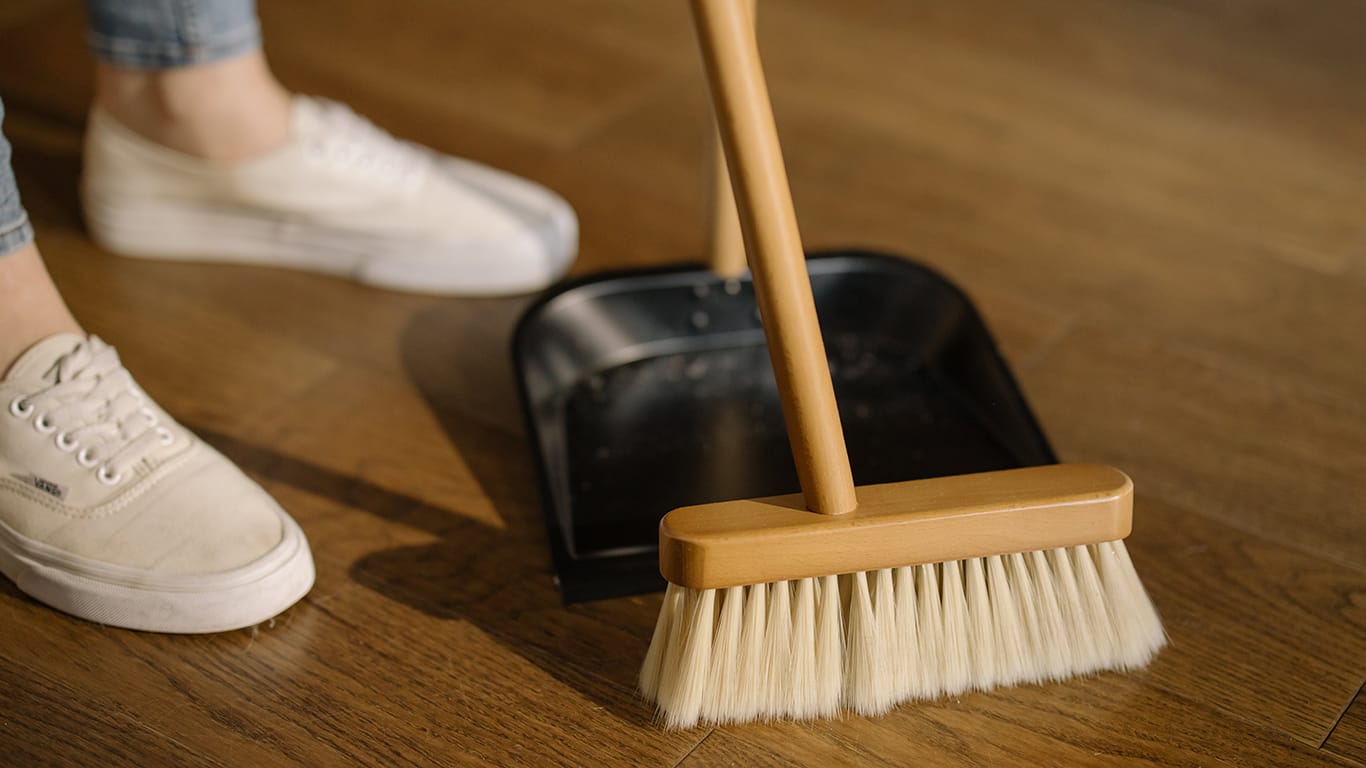In today’s busy world, finding moments of peace and relaxation at home can be challenging. While many people focus on things like meditation or mindfulness to reduce stress, one often-overlooked factor is the cleanliness of the home itself. House cleaning isn’t just about making things look good—it plays a vital role in reducing stress and creating a more serene environment.
In fact, a clean home can be the foundation for mental clarity, emotional balance, and overall well-being. Regular house cleaning provides more than just a tidy space—it creates a sanctuary where you can truly relax and unwind. This article explores how maintaining a clean home can directly contribute to lower stress levels and a more peaceful living space, with practical tips on integrating house cleaning into your routine for a calm and stress-free atmosphere.
How Clutter Contributes to Stress:
Clutter can be overwhelming, not just physically but mentally. A messy environment often makes it difficult to focus or relax because it constantly reminds you of unfinished tasks. Psychologists have found that clutter can elevate stress hormones like cortisol, making it harder to unwind and leading to feelings of anxiety. The sight of dirty dishes, piles of laundry, or cluttered desks can trigger mental fatigue and make even simple tasks feel insurmountable.
In contrast, a clean, well-organized space promotes mental clarity. When your home is tidy, it creates an environment that allows you to unwind and feel more in control of your surroundings. According to Sofia Martinez, CEO of Sparkly Maid Austin, keeping your home clean can significantly reduce stress and improve overall well-being. “A clean environment is not just about aesthetics,” says Martinez, “it helps clear the mind and sets the stage for relaxation.”
The Psychological Benefits of a Clean Home:
Beyond reducing clutter, a clean home offers numerous psychological benefits. The sense of accomplishment that comes from completing cleaning tasks, such as organizing a closet or deep-cleaning a kitchen, can boost self-esteem and satisfaction. The act of cleaning itself can also be meditative—repetitive tasks like vacuuming or dusting allow your mind to focus on something simple and rhythmic, giving you a mental break from daily stressors.
Additionally, a clean home offers a sense of control and routine. When life feels chaotic, cleaning is a task that offers immediate, visible results, giving you a sense of achievement. This not only provides relief from stress but also helps you regain a sense of order in your life.
How Clean Spaces Improve Focus and Productivity:
An organized home doesn’t just lower stress—it also helps improve focus and productivity. A cluttered space can create distractions and make it hard to concentrate on tasks at hand. Research shows that individuals in clean environments are more likely to stick to their tasks, make better decisions, and experience fewer interruptions during work.
By keeping your home clean and clutter-free, you create a space that allows for clear thinking and better problem-solving. This is especially beneficial for people who work from home or students who need a quiet, organized environment for studying. Regular house cleaning helps you maintain a space where you can work efficiently, without being derailed by unnecessary distractions.
Creating a Routine to Maintain a Clean and Calm Space:
One of the keys to keeping a home stress-free is to establish a consistent house cleaning routine. You don’t need to spend hours every day cleaning to achieve a calm and orderly home. Instead, focus on small, manageable tasks that can be done regularly. For example, a quick 10-minute clean-up each day can make a big difference in maintaining a tidy space.
By dividing tasks into daily, weekly, and monthly categories, you can keep cleaning from becoming overwhelming. This approach not only helps keep your home in order but also prevents cleaning from piling up into one large, stressful task. Tasks like wiping kitchen counters daily, vacuuming once a week, and deep-cleaning bathrooms monthly help spread out the workload and keep your home consistently clean.
Clean Spaces and Better Sleep:
A clean home doesn’t just reduce stress during the day—it can also improve your sleep quality at night. A cluttered bedroom can create anxiety and make it harder to relax when it’s time to sleep. A tidy, fresh environment encourages rest and relaxation, helping you fall asleep more easily and enjoy deeper sleep throughout the night.
House cleaning, especially in areas like the bedroom and bathroom, contributes to a sense of calm and order that promotes relaxation. Regular cleaning can also eliminate dust and allergens, further enhancing your sleep quality. When you maintain a clean space, you’re creating the perfect environment for restful, rejuvenating sleep.
Long-Term Benefits of a Clean Home:
Keeping a clean home not only reduces stress and improves sleep but also has long-term benefits for your mental and physical health. Living in a clean space encourages healthier habits, such as regular exercise and better dietary choices. When your home is clutter-free, it becomes easier to maintain an active lifestyle—whether it’s preparing healthy meals in a clean kitchen or finding space for indoor workouts.
Over time, a clean home can lead to lasting improvements in your overall well-being. From better mental clarity and productivity to improved physical health, the benefits of house cleaning extend far beyond surface-level aesthetics.
Conclusion:
Maintaining a clean home is more than just a chore—it’s a vital aspect of self-care that can significantly reduce stress and improve your overall well-being. By keeping your space tidy, you create an environment that supports relaxation, clarity, and peace of mind. Incorporating a simple cleaning routine into your life can have profound effects on your mental and physical health, making your home a sanctuary of calm and comfort.




